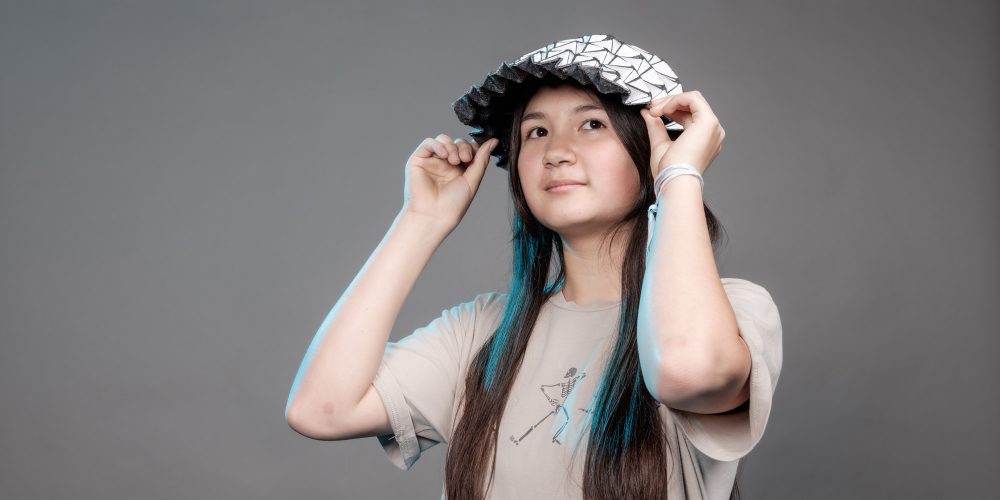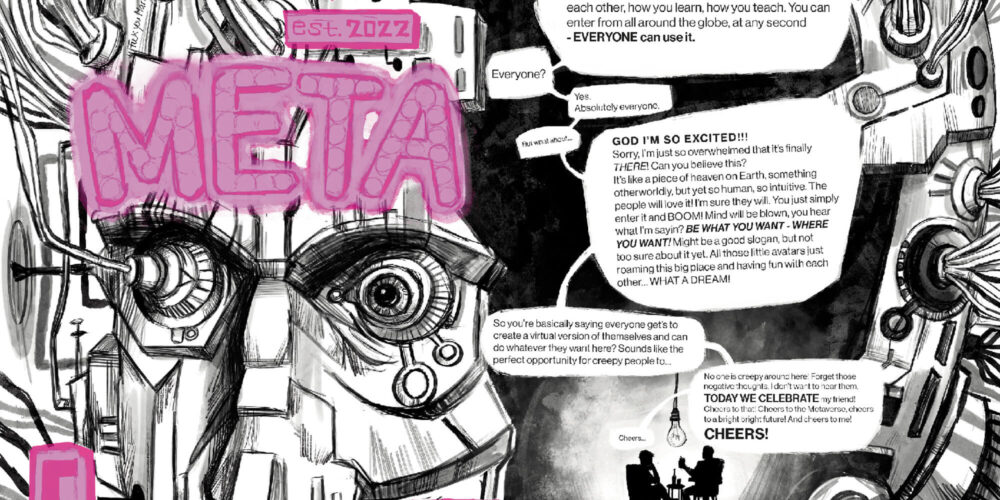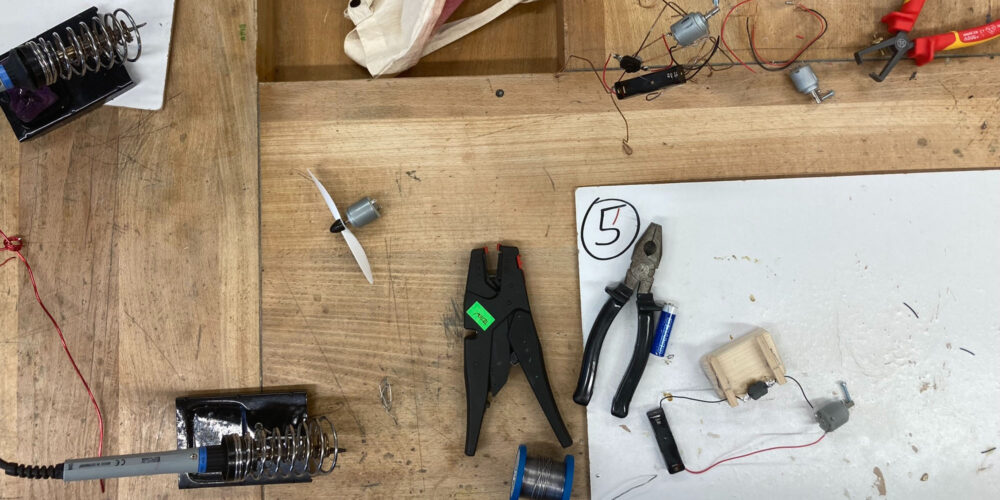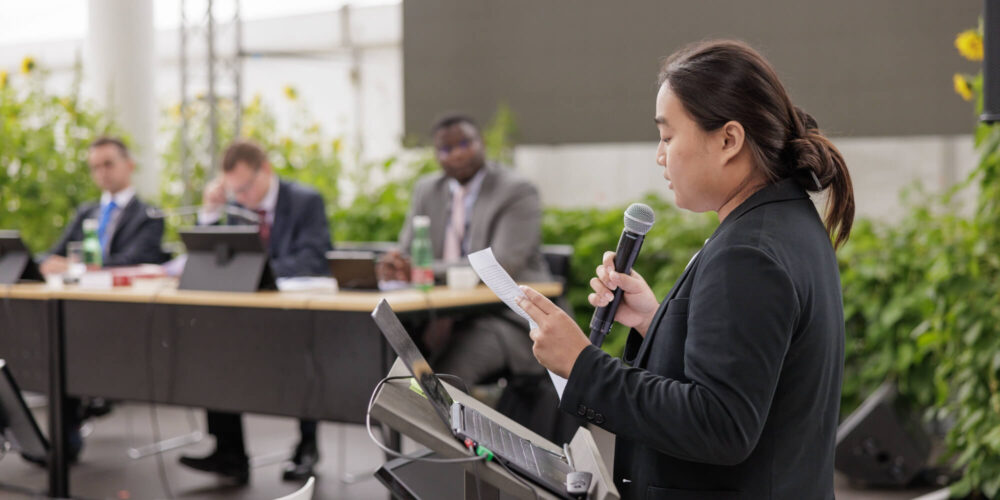
Education
-
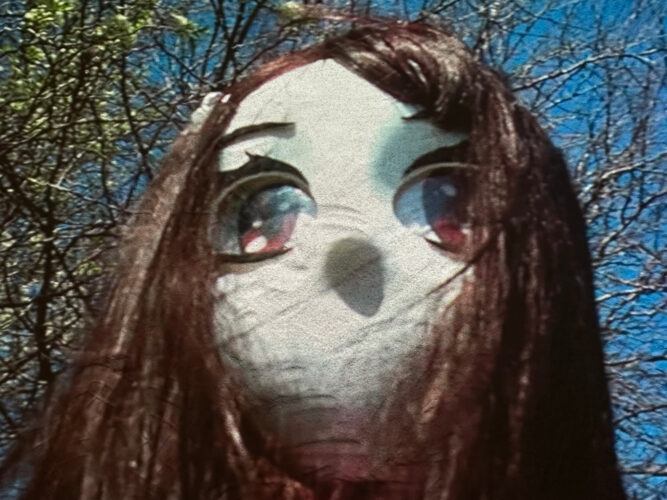
Who needs art in times like these?
Amid global crises and radical upheavals, the Ars Electronica Festival asks what role art can play—as a catalyst for new perspectives, as a space for reflection, and as a driving force for a collectively shaped future.
-
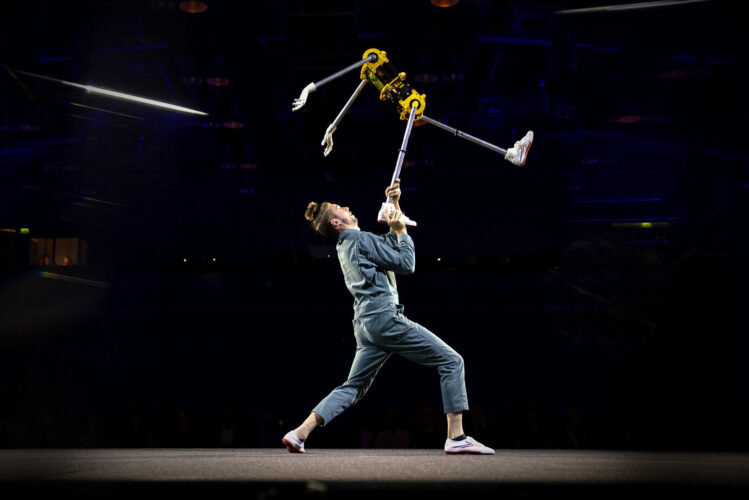
A record: More than 112,000 visits to Ars Electronica 2024
Once again, the Ars Electronica Festival has shown what it is all about: creating space, time and an atmosphere in which people can exchange ideas and inspire each other.
-
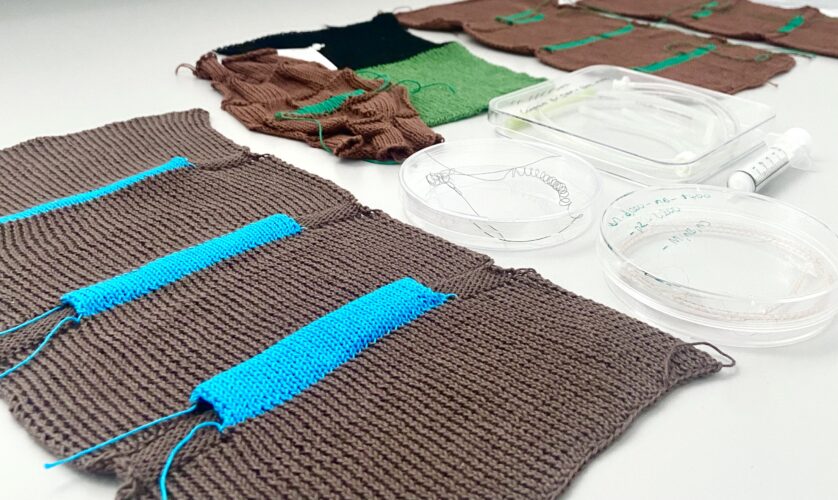
Rethinking clothing with knitting, origami, and Magic Girls
Material research meets design: Lingxiao Luo shows how programmable, sustainable clothing interacts with its wearers.
-
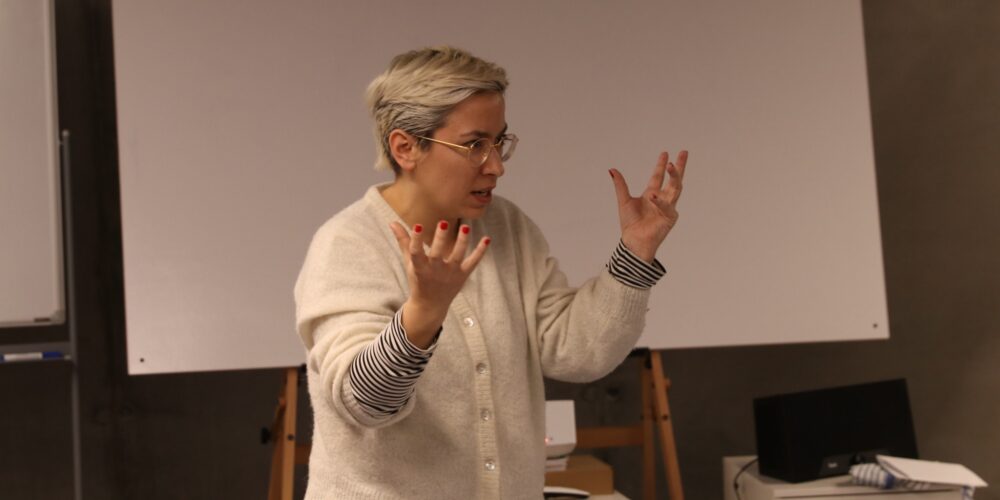
Intersections of Technology, Society, and Environment in Mobility
In the sixth and last chapter of the FOUNDING LAB Fall Term, students delve into the intersection of technology, society, and policy through the lens of mobility
-
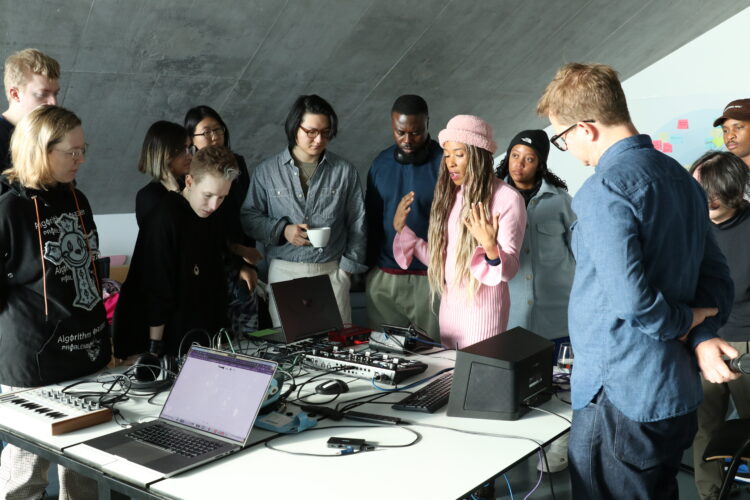
Disinformation, manipulation and the art of storytelling
In the fifth chapter of the FOUNDING LAB Fall Term students examine the incentives, tactics, and mechanisms of online news construction and dissemination.
-
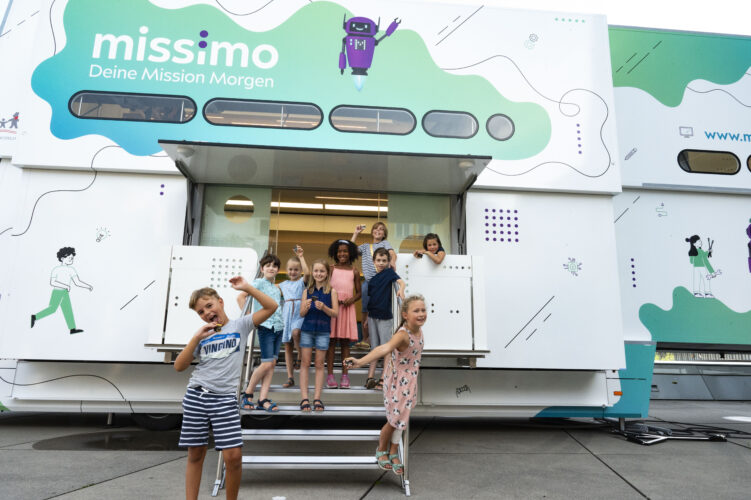
Creative and playful learning for the future
AI, robotics, programming, and more: “missimo” brings basic digital education to rural elementary schools throughout Austria.
-
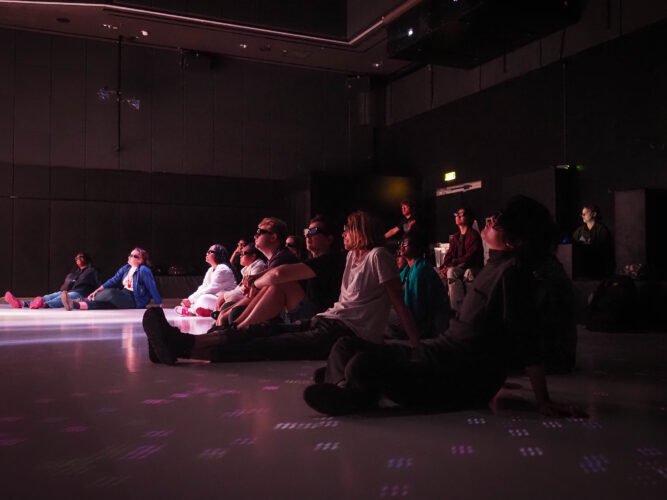
FOUNDING LAB Fall Term: Interdisciplinarity as a New Expertise
25 students and 21 fellows are currently testing jointly developed visions for the university of the future in Linz. The focus is on interdisciplinary and project-based work.
-
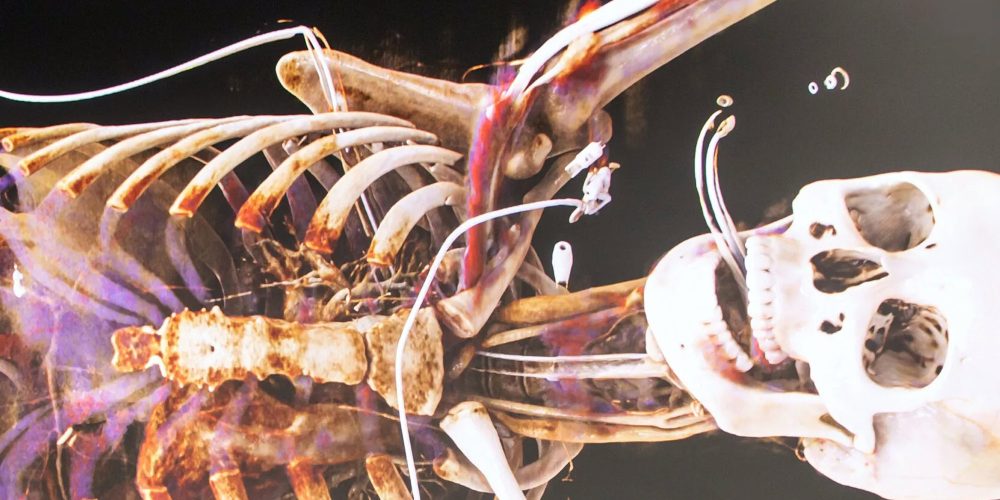
Jury honors anatomy education of the future
Following international success: Upper Austrian Prize for Innovation goes to “Cinematic Virtual Anatomy” by Ars Electronica Futurelab, JKU and Siemens Healthineers.
-
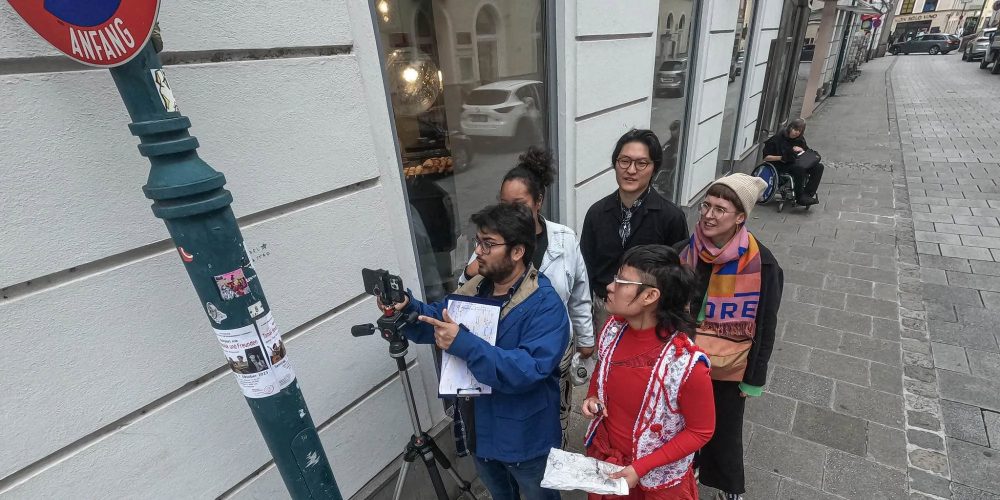
Soft Wars – Data, code and models that shape our lives
The second chapter of the Fall Term focused on data and coding. The Fall Term is part of the FOUNDING LAB, a collaborative prototype of a new university.
-
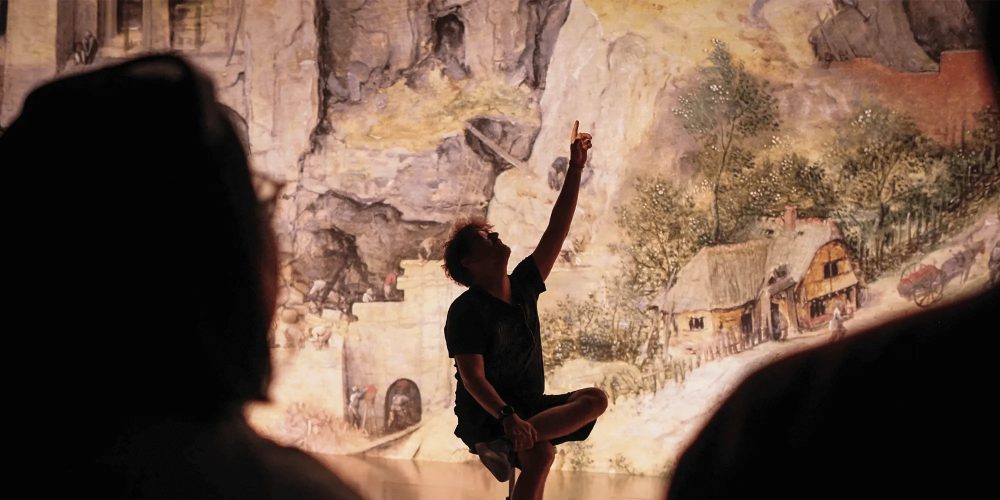
Of digital systems, colonialist implications, and sustainable solutions for technology.
In the first chapter of the Fall Term, Fellows and students together address infrastructures of digital systems. The Fall Term is part of the FOUNDING LAB, a collaborative prototype of a new university.
-
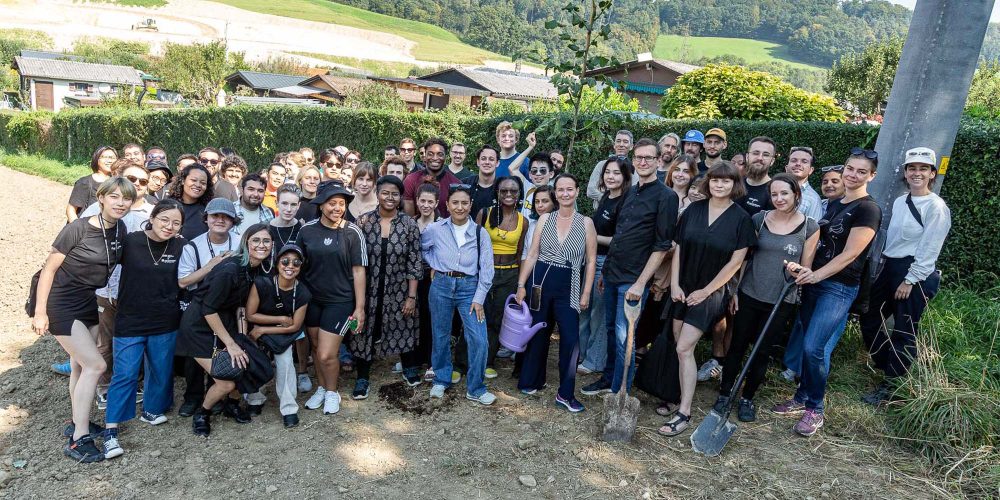
On the Art of Reinvention: A University Begins
As part of FOUNDING LAB, Ars Electronica and the Institute of Digital Sciences Austria commissioned 75 students from around the world to imagine a new university.
-
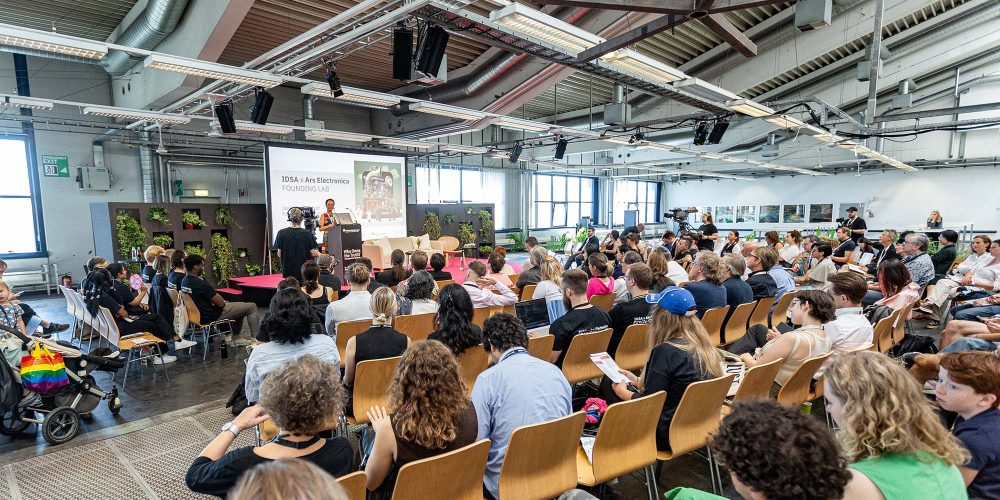
A New University Starts – FOUNDING LAB
As kickoff event of the FOUNDING LAB Forum and insightful reflection on the FOUNDING LAB Summer School, this conference provides an initial impulse for the direction that the brand-new university will take.
-
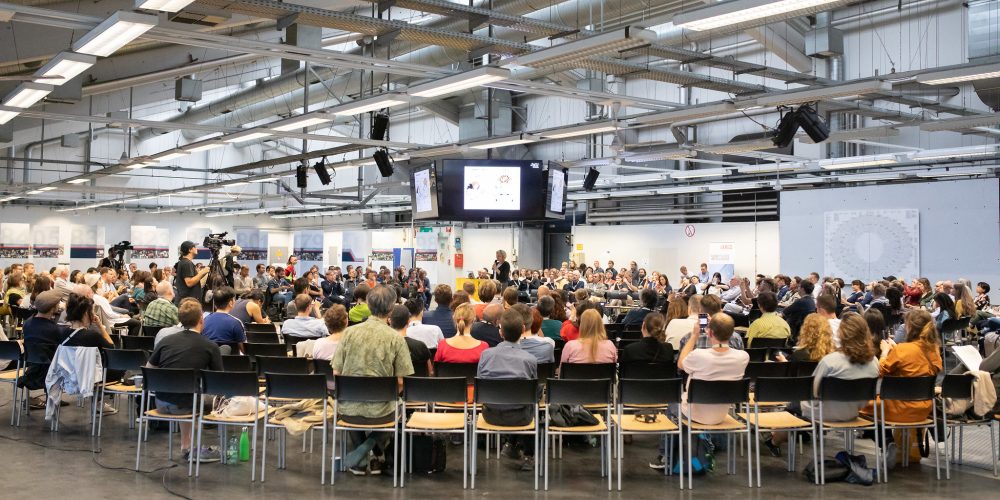
Discussing Truth in a Digitized World
The conferences held during the Ars Electronica Festival bring international personalities on stage to examine contemporary issues from a range of perspectives.
-
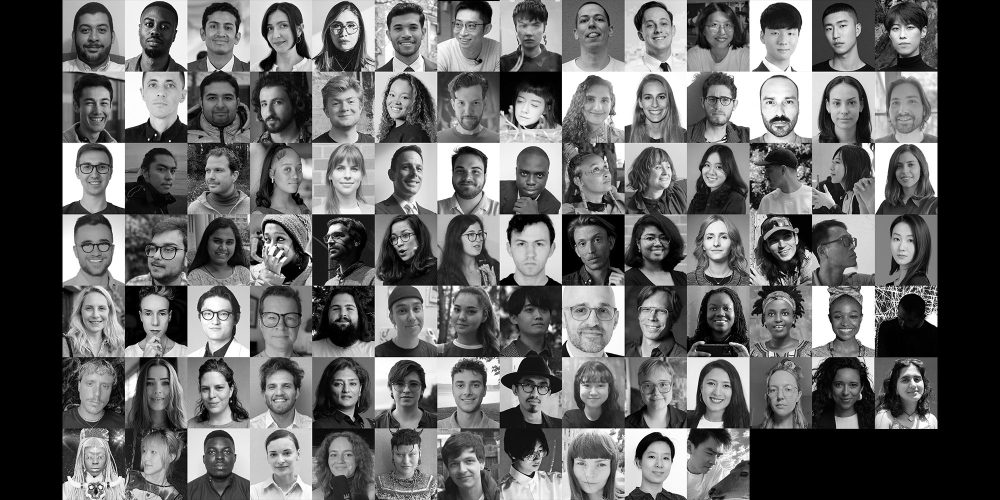
IDSA x Ars Electronica FOUNDING LAB: Forging a Transdisciplinary University
Introducing the IDSA x Ars Electronica FOUNDING LAB, a collaborative project that redefines the dynamics of a pioneering university in the age of digital transformation.
-
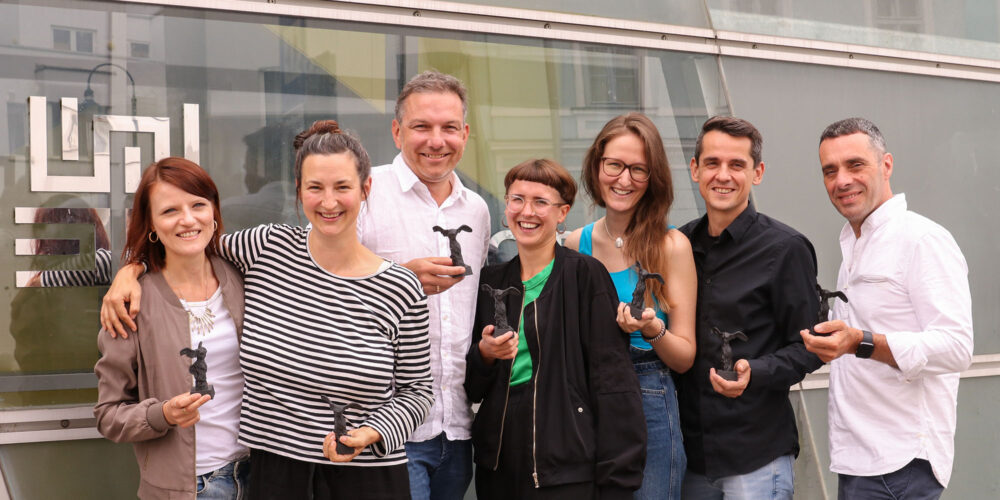
Building bridges with cards and hearts
Get involved at the Ars Electronica Festival: Special experiences await visitors with the winning projects from the Futurelab Ideas Expedition.
-
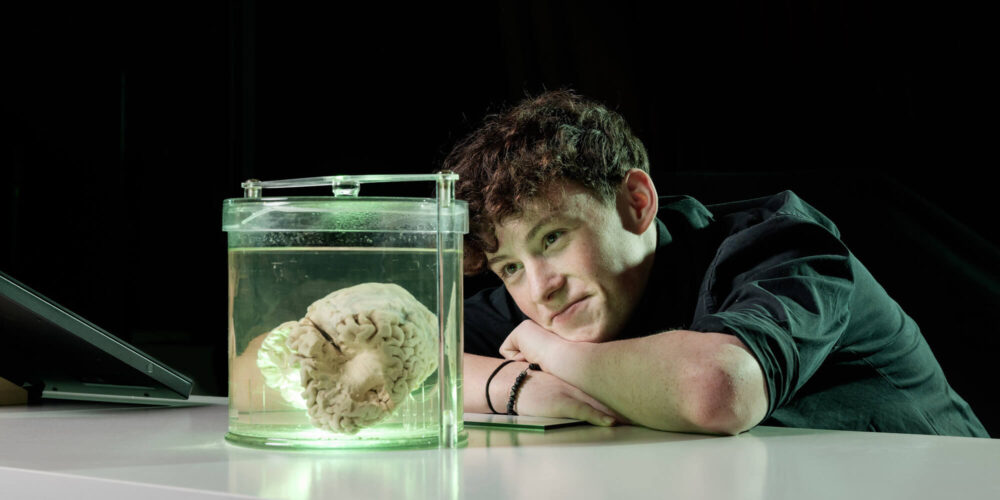
Digital Literacy – Learning with and about technology
After a COVID-19 driven digitalization push, ChatGPT is currently rocking the established habitus of teaching methods and learning objectives. How can we teach learning with “future technologies”?
-
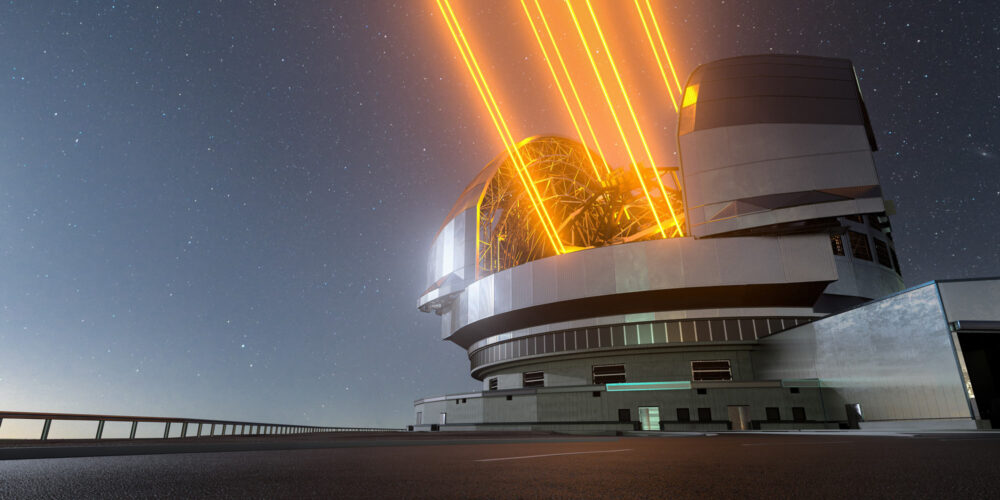
School, space or how to awaken curiosity about science
“School and Space 2023” symposium: The fascination for the infinite depth of space inspires young and old for science and technology.
-
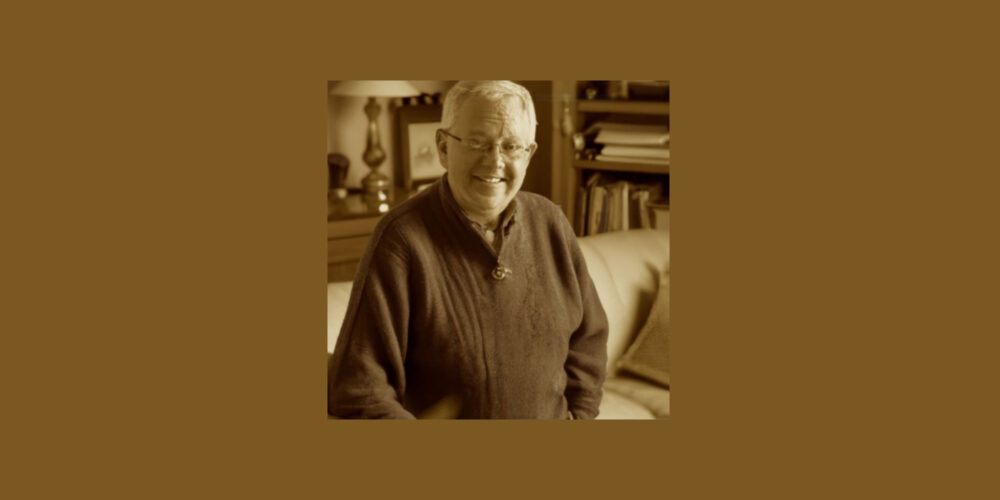
Via algorithm into a virtual parallel reality
With “Horst Schlager,” the Ars Electronica Center infiltrates a media art figure into Facebook’s extremist underground in order to understand and communicate political grievances.
-
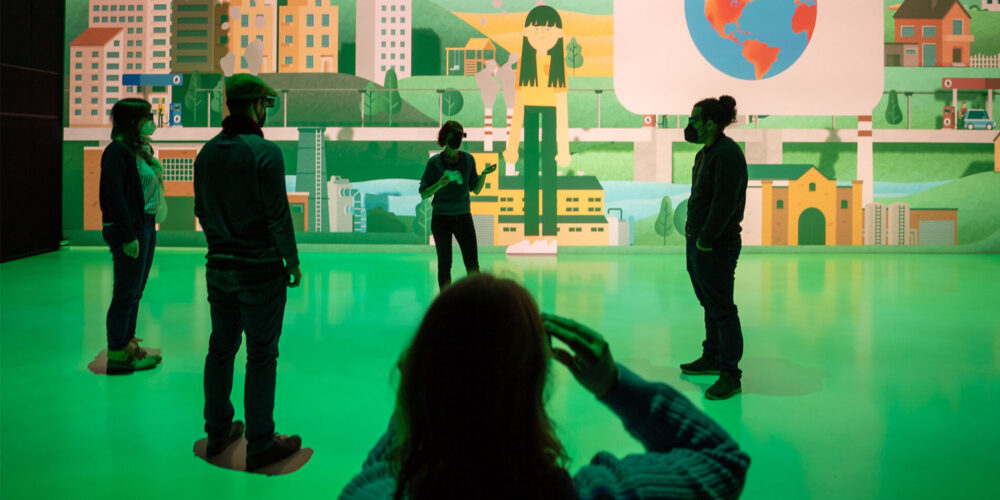
Society? That’s us!
It’s the third pillar of Ars Electronica, and we’re all a part of it: In part three of our annual review, we’ll tell you what the “Society” in our name stands for.
-
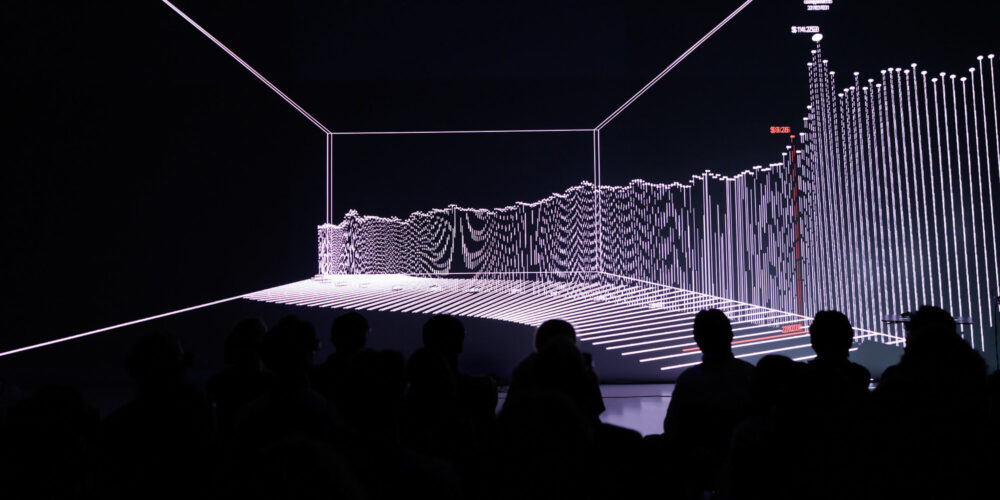
Dataspace: Newspaper of the Future?
How to bring truth to the center of collective perception? Artistic Journalism and Dataspace as ways out of the vacuum of real information.
-
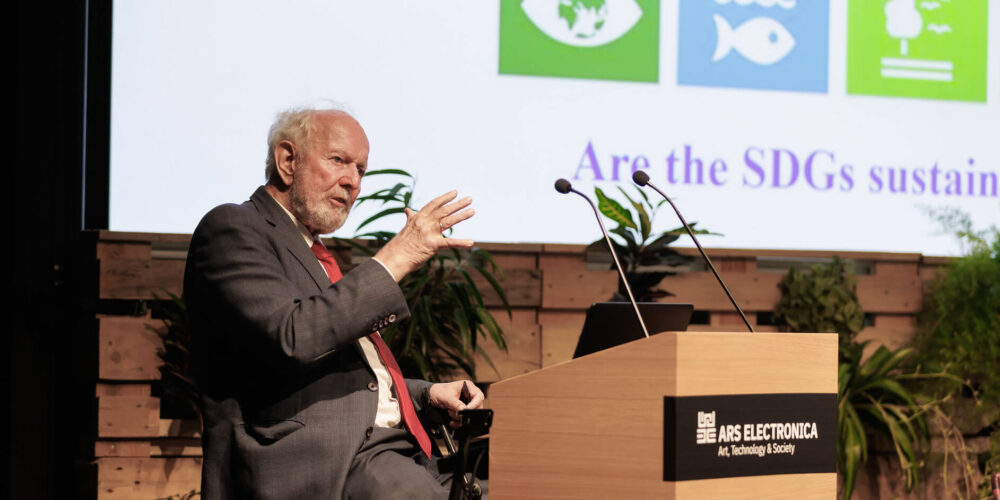
Earth4All: It is not too late
50 years after “The Limits to Growth” Club of Rome with “Earth4All” warns about the consequences of social inequality for our planet: A Survival Guide for Humanity
-
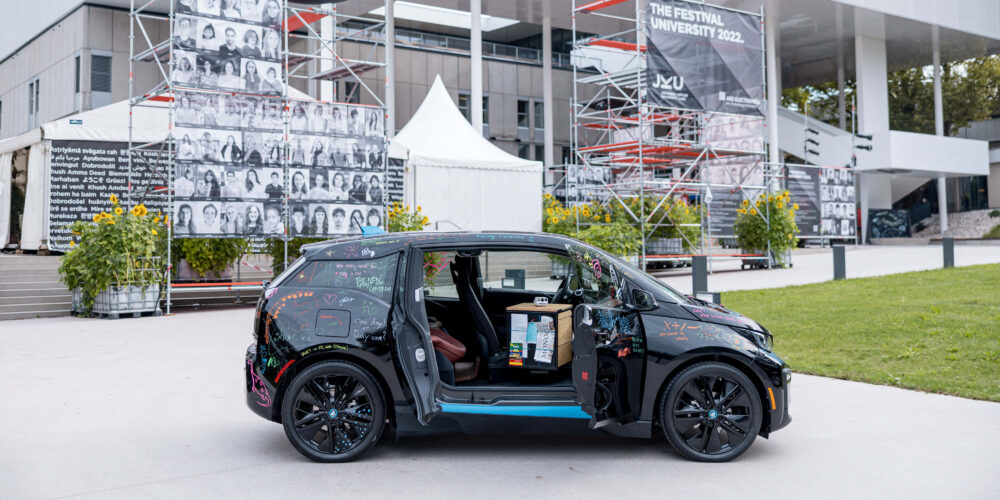
On four wheels into the future?
BMW, Supersense and Ars Electronica Futurelab focused on the automobile in the midst of the climate and energy crisis.
-
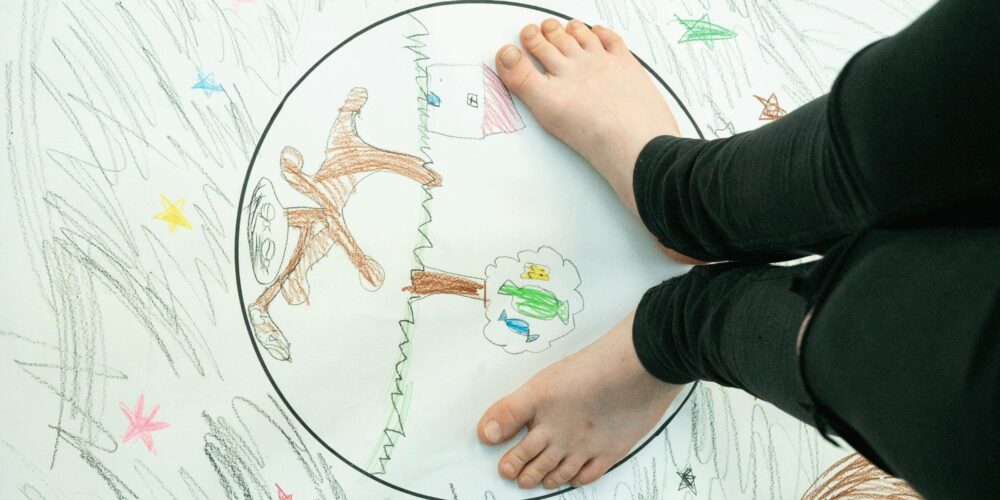
Directors Talk: Facing crises creatively
How can creativity and art help society face crises in a resilient way? The Ars Electronica Futurelab is looking for answers.
-
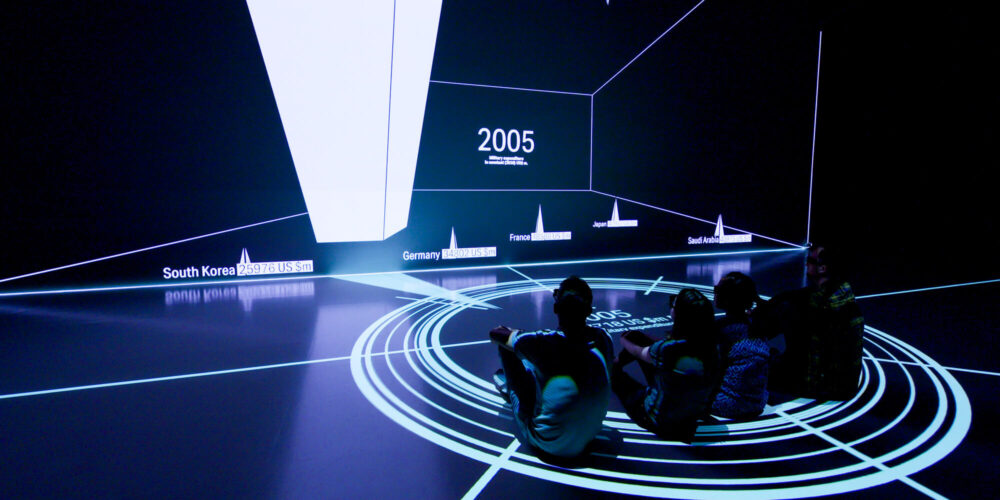
Dataspace: Global Impact of Russia’s War on Ukraine
What does this war mean for each of us? A visualization of facts and figures explains the consequences of an invasion.
